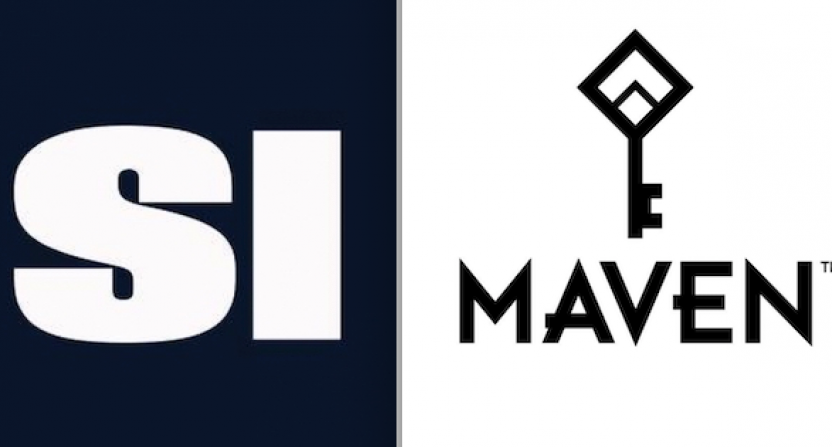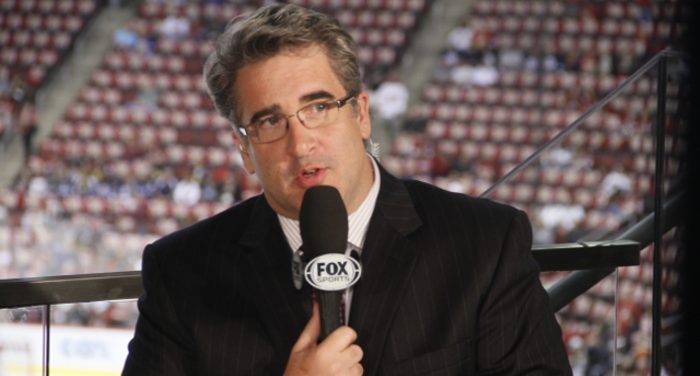It’s been a tumultuous few months at Sports Illustrated operator Maven, from staffing cuts to worrisome financial filings to salary reductions to suggestions team site publishers create burner accounts to employment of a convicted felon and sudden background checks on other publishers to further layoffs, a threat to take down tweets about layoffs, and a lawsuit over unpaid fees. And now, new CEO Ross Levinsohn (who was appointed to that role in August, and has been attached to plenty of controversy over the years) has brought in some dramatic changes for Maven’s various independent publishers (or “platform partners”), including the publishers of the SI team sites. Multiple sources told Awful Announcing those changes involve removing guaranteed payouts, switching the publishers to a fully revenue-sharing funded model, parting ways with yet more publishers (and also a couple of Maven executives), and rebranding Maven sports channels as “FanNation” (while keeping those under the SI domain).
Awful Announcing has seen an e-mail sent to Maven publishers that informs them that “we are dramatically increasing the advertising revenue share we currently offer our publishers, from their current rate to 70 percent, while at the same time eliminating our guarantees to better align our goal of being a core platform technology company.” The guarantees will end as of October 31 (30 days from the Oct. 1 date of the letter).
That letter also states that Scott Kennedy and Glenn Nelson “were not retained in this transition.” Kennedy (listed as Maven’s “general manager – sports” and an executive there since July 2018) has been discussed here before as the executive who repeatedly encouraged publishers to get conversations going in the community tabs of their sites by creating burner accounts, while Nelson (listed as Maven’s “senior vice president, network and editorial development”) has been discussed here before as the executive who accidentally sent an e-mail about Patrick Starr meant for human resources to several groups of Maven team site publishers instead. Mark Pattison (the former University of Washington and NFL receiver, listed as Maven’s “senior vice president, business development”), the executive who told a laid-off publisher to take down tweets about being laid off, is cited as an executive who will be reaching out to retained publishers to discuss this shift away from guarantees, as is Ben Beachler (listed as just “vice president, Maven Network”).
Awful Announcing has also seen an e-mail Beachler sent to publishers who are being let go. That e-mail states that all partners were evaluated for how they fit the company’s new vision. The metrics used in that evaluation were not shared, but it seems likely it’s not just about traffic; AA has spoken to several Maven publishers previously let go whose sites were well ahead in traffic of some publishers who were retained.
These latest cuts weren’t unexpected by some of the publishers given issues at the company, though. When asked if they were surprised, one source told AA “Oh no. Anyone who works for them and didn’t see this coming has a half a brain.” That source added “After Levinsohn took over, several of the writers (myself included) placed bets as to when all this would end. I said by November. So at least I have that $50 payoff to look forward to.”
The shift from a guarantee model to a full revenue-sharing model is also worth further discussion. The Maven e-mail on that front says their first five years focused on building their network, and they’re now “moving to the next phase of growth.” But this particular change seems likely to emphasize chasing short-term clicks even more. Yes, traffic was already a huge focus for Maven, with multiple sources previously telling AA about constant pressure to get site visits up, get that “community engagement” up (hence the burner account suggestion), and publish a ton of videos, but the guarantees both allowed them to bring in some notable people (it’s awfully difficult to convince anyone even somewhat established to come work for you on a solely revenue-sharing basis) and allowed for some focus on pieces that were worthwhile to readers but not necessarily producing the most clicks. With those guarantees gone, publishers will have to focus further on clicks if they want to make money, and that could hurt the quality of what they’re producing.
The latest
But apart from the FanNation name, this is also significant because it potentially suggests a wider divide in the public presentation of content from actual Sports Illustrated staffers and content from the team site publishers (who are not employees, but independent operators who have publishing agreements with Maven). In the past, there’s sometimes been little distinction in how that looks. And that’s led to controversy when team sites have run with reports contradicting actual SI reporters, or when team sites have employed problematic people.
Multiple SI writers have spoken to AA about how they feel poor work at some team sites has impacted the overall SI brand, and they’ve mentioned that some of their own interview requests with sources have been turned down thanks to how SI is operating now. A wider separation between SI proper and the new “FanNation” might help there, and it might help make it clearer what’s content from SI itself and what’s coming in from the team sites. And a branding divide between actual SI and team sites worked pretty well for the most part back when it was paired with FanSided. (Some other affiliates, not so much.) But, of course, SI owner ABG is currently slapping the SI logo on “brain formula” and countless other licensed products, so team sites aren’t the only brand perception problem here.
Overall, it’s certainly interesting to see Levinsohn making these kinds of dramatic shifts just over a month into his tenure as Maven CEO. (He had previously been CEO of the SI media line under Maven CEO Jim Heckman.) And these changes do suggest that Maven (and particularly its work with its sports “platform partners”) is going to look pretty different going forward. But that isn’t necessarily change for the better.
-With files from Ben Koo.







